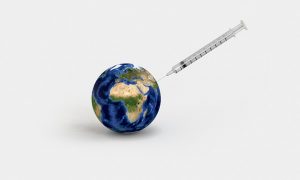All over the world, infectious diseases are on the rise. Every day on the news, you might hear a breaking story about the discovery of a novel virus that has the potential to wreak havoc across the globe. At the same time, you might be hearing about infectious diseases that have been around for centuries but are somehow making a comeback. Consider some of the most recent developments in the field of infectious diseases:
- The Zika virus has gained traction in South American countries like Brazil, and it has also been carried to other countries, like the United States. The effects of the virus are not well understood, but it has been shown to cause microcephaly in infants after their mothers have been infected.
- Between 2014 and 2016, the most recent outbreak of Ebola ravaged countries in West Africa, causing a worldwide health scare.
- Over the last two years, there have been measles outbreaks across Europe, especially in Romania, where over 3,400 cases have been reported since January 2016. Some suggest that the increase in measles, mumps, and rubella has resulted from unwarranted fears about the safety of vaccines for children.
- Scientists have recently reported that the number of new flu viruses is increasing each year. This is making it increasingly harder for scientists to develop effective vaccines.
If stories like these capture your academic interest as a physician, you may want to consider becoming an infectious disease specialist in the future. Read on to learn more about working as an infectious disease specialist and what you need to do to become one.
Working as an Infectious Disease Specialist
An infectious disease specialist is a physician who is an expert at diagnosing, treating, and preventing the spread of illnesses that are transmitted from person to person. Infectious diseases may be caused by bacteria, viruses, parasites, or fungi, and they can affect many different parts of the body. Although some infectious diseases, like the common cold, are relatively easy to diagnose and treat, most infectious disease specialists focus their work on infections that are particularly difficult to treat or have not been fully studied.
As an infectious disease specialist, your job could involve aspects of clinical practice, scientific research, and public health efforts. Depending on your interests and training, you might spend some of your time working directly with patients, providing them with vaccinations against infectious diseases and/or therapies to treat infections that they have already contracted. You might also choose to spend some of your time in the research lab, developing and conducting rigorous studies with the goal of finding new prevention and treatment strategies or identifying new strains of a deadly infection. If you are interested in public health, you could also find yourself using your medical knowledge to develop and direct large-scale efforts to address and eradicate infectious diseases in a broader community.
The Steps to Becoming an Infectious Disease Specialist
Regardless of the particular aspect of infectious disease in which you are most interested, the basic components of training for this career are the same. After you finish your training in medical school, you must complete a three-year medical residency in internal medicine. If you are specifically interested in becoming a pediatric infectious disease specialist, you will also need to complete a medical residency program in pediatrics. Although it can be tough for foreign medical graduates to get matched to U.S. medical residency programs, it is important to note that internal medicine and pediatrics are two of the specialty areas in which foreign medical graduates are most commonly matched. To increase your chances of getting matched, you might also want to consider completing a student elective or a clinical externship program in infectious diseases, internal medicine, and/or pediatrics before you apply for your residency.
After you finish your residency, you can get the expertise you need to become an infectious disease specialist by completing an ACGME-accredited fellowship program in infectious diseases. Depending on the location, these programs can last for either two or three years. In most programs, fellows divide their time between clinical training with patients and research training in a particular area of interest. Research within the field of infectious diseases tends to vary widely, and it may fall into any of the following categories:
- Basic science
- Translational science
- Clinical trials
- Epidemiology / public health
- Global health studies
Upon completion of one of these programs, you will be prepared for the Infectious Disease subspecialty certification exam offered by the American Board of Internal Medicine (ABIM). From there, you can start an exciting career as an infectious disease specialist!
FMG Portal offers valuable resources for foreign medical graduates who are looking to pursue careers in a wide range of specialty areas. Contact us today for more information about how to get matched to the U.S. medical residency program of your dreams!
